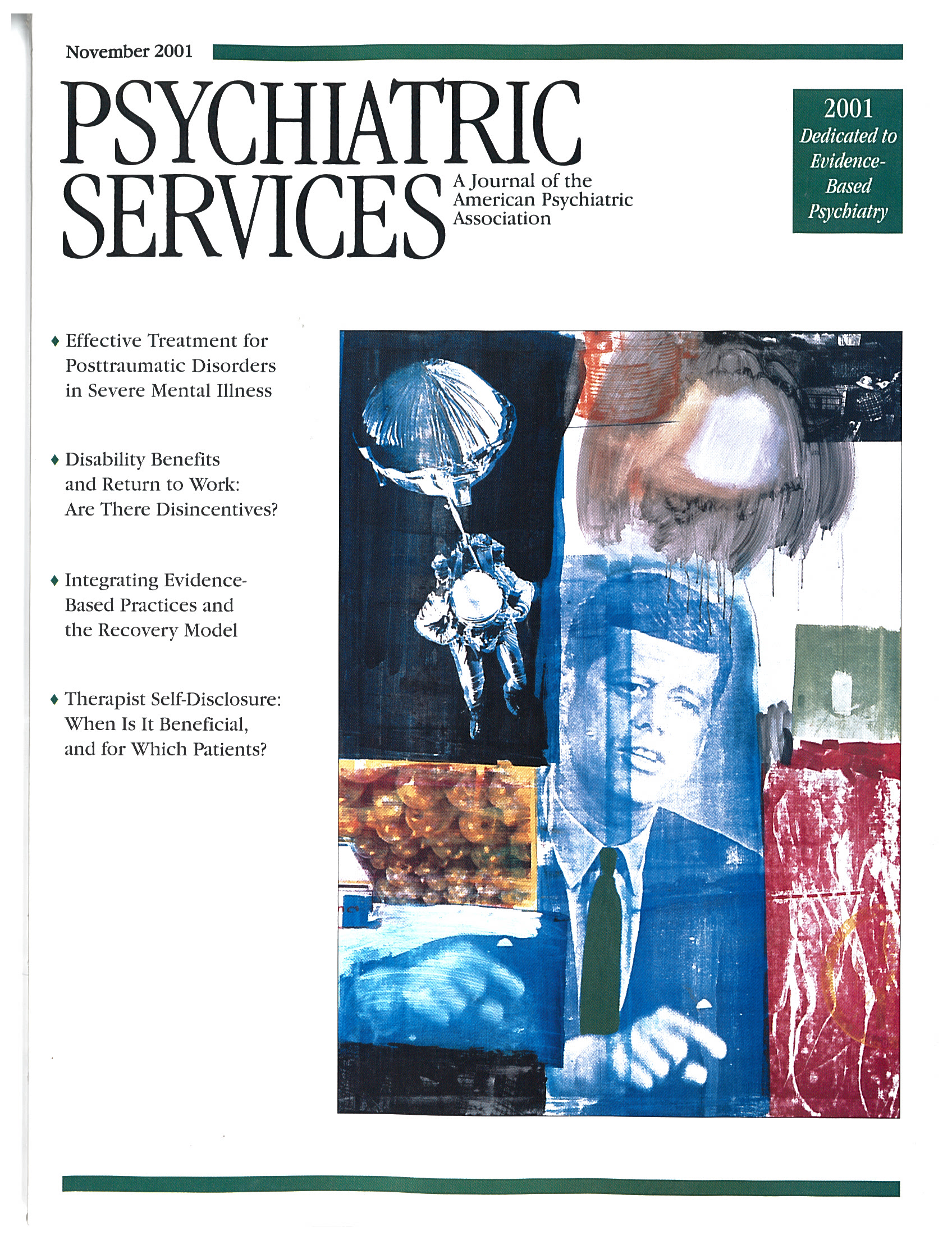To the Editor: In the May issue Dr. Kelly and her colleagues (
1) compared hospital discharge rates and costs for patients receiving risperidone and those receiving olanzapine. In the abstract and discussion section, they interpret their findings as suggesting that use of risperidone results in a higher discharge rate, which would lead readers to conclude that risperidone has a greater efficacy. However, their data do not support such a straightforward conclusion.
The naturalistic study does, however, support an association between risperidone and a higher rate of discharge at 30 days. The authors also report an association between a lower dosage of risperidone and a higher discharge rate at 30 days. They correctly draw these conclusions in the body of their article. However, to say that risperidone "results in" a higher discharge rate—even if the statement is tempered by the qualification that the data "suggest" such a conclusion—is misleading.
Because both drugs have the same indications, there must have been a reason that some patients received risperidone and others received the newly introduced olanzapine. Two obvious sources of bias present themselves—one deriving from variations in physicians' behavior and one from variations in illness factors.
In the case of physicians' behavior, Dr. Kelly and her coauthors did not report whether the physicians in the study prescribed the two drugs at the same rate, nor did they indicate whether the prescription rates were similar across institutions. At the start of the study period, olanzapine had been available for less than a year. It is quite possible that risperidone was disproportionately prescribed by more conservative practitioners and olanzapine by more adventurous ones. Prescribing behavior is a potentially serious bias that was not controlled for in this study or addressed in the analysis.
In terms of illness factors, the newer drug may have been prescribed more frequently for difficult-to-treat or refractory patients. Such patients may also have received higher dosages of risperidone. Dr. Kelly and her colleagues reported that the risperidone- and olanzapine-treated groups were broadly similar on a number of features. However, only prospective case matching or random allocation can effectively reduce this potential bias. If the two drugs were not being prescribed by different groups of physicians, then presumably these physicians were making their choice of drug for each patient on the basis of some perceived or real clinical grounds. How do we know that more severely ill patients were not prescribed the new drug?
Dr. Kelly and her colleagues are right to emphasize the value of more naturalistic studies. We need more pragmatic studies, and we need to know much more about real-world practice. However, interpretation of the results of such studies requires more, not less, rigor than interpretation of the findings of experimental trials. We are informed that this paper has been presented at three international meetings. It would be surprising if the proper limits of legitimate conclusions that can be drawn have not already been pointed out to the authors.

